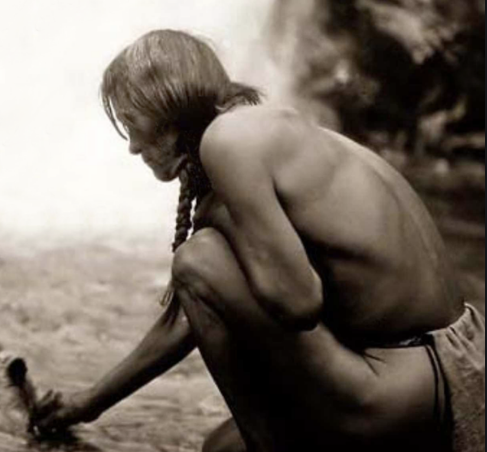
The Role of the Shaman
Leader?, Magic Maker?
(Druids in Bronze age Britain)
Cochimi Shaman from Bradshaw Collection
Shamans were seen as purveyors of truths and fortune, they could have great power over a clan or group. . . if they were good enough.
Clansmen would come to the Shaman seeking advice or a magic potion. They may also be looking for an aid or spell to enhance the chances of success in an upcoming hunt. In most cases, the shaman would be aware of what was going on and would know perfectly well what the questions were that were going to be asked, so allowing the shaman to prepare the appropriate answer in advance.
Through the use of props and divination artifacts they could manipulate some of the future outcomes and consequently manipulate power. These props could be the scattering of bones on the ground and interpreting the resulting pattern. (Tea-leaf reading anyone?)
The successful Cochimi shaman would not have had the mind of a Thomas Aquinas speculating on the nature of God but he would, no doubt, be a proponent of a nature based theology and of the reason and rationale that is found in the deities and spirits of his environment. He would be adept at understanding the psychology of Cochimi men and how they fit into this environment. And. . . if he lacked a comprehensive theology like the Christianity that the missions brought, with which to guide and console his people, he would have had the remarkable skill in banishing the Cochimi’s greater fears, controlling their wilder passions and lending them the assurances they needed to survive in an era of declining resources.
Discuss the comparability of Trumpism factors and give examples. . . such as The Big Lie.
The shaman could then control the destiny of the group or clan and if he wanted to go to war with another clan, he could manipulate his cohorts and make it happen!
